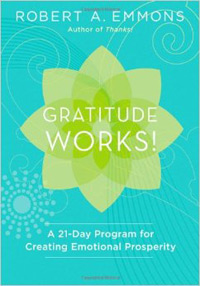 Last year during the cold New York City winter, I lost my favorite hat. It was a knitted beanie, dark grey, and it matched almost everything. At some point during a busy weekend, I realized it was missing. This might sound silly, but I grieved. I knew the city was big, my path had been long and circuitous, and that hat was permanently lost.
Last year during the cold New York City winter, I lost my favorite hat. It was a knitted beanie, dark grey, and it matched almost everything. At some point during a busy weekend, I realized it was missing. This might sound silly, but I grieved. I knew the city was big, my path had been long and circuitous, and that hat was permanently lost.
A week or two later, I was at a theatre, and it occurred to me to look through their lost and found box. Behold, there it was! My grey beanie was crammed in among other lesser hats, crumpled scarves, and old gloves. My heart leaped and I felt jubilant. I was filled with gratitude. All too often, you lose something precious—a person, a physical capability, a job, a piece of sentimental jewelry, or sometimes even an entire way of life. My loss was just a hat, but I was thankful and pleased by the thought that sometimes, that which is lost can be restored. Even small grateful moments like this one can have lasting benefits.
Science proves that gratitude makes a positive difference in our lives. An appreciative attitude can be motivating, inspiring, calming, and can benefit our lives in any number of ways, including these:
1. Humility
 Robert Emmons, author of Gratitude Works!, explains that gratitude cultivates humility and humility cultivates gratitude. He tells us life works better when we collaborate, give, and receive. We need each other, and we need to remember that fact. He says, “Becoming aware of realities greater than ourselves shields us from the illusion of being self-made, being here on this planet by right—expecting everything and owing nothing. The humble person says that life is a gift to be grateful for, not a right to be claimed. Humility ushers in a grateful response to life.” Humility is a goal best achieved by staying mindfully grateful.
Robert Emmons, author of Gratitude Works!, explains that gratitude cultivates humility and humility cultivates gratitude. He tells us life works better when we collaborate, give, and receive. We need each other, and we need to remember that fact. He says, “Becoming aware of realities greater than ourselves shields us from the illusion of being self-made, being here on this planet by right—expecting everything and owing nothing. The humble person says that life is a gift to be grateful for, not a right to be claimed. Humility ushers in a grateful response to life.” Humility is a goal best achieved by staying mindfully grateful.
2. Friendship
Expressing gratitude to an acquaintance increases the likelihood of an ongoing friendship. Saying thank you indicates that you’re a good candidate for friendship, so the acquaintance is more willing to consider befriending you further.
A thankful demeanor makes you a good bet for friendship and boosts helpfulness. One study from 2003 indicates that social behaviors are boosted by gratitude, meaning that people who express thankfulness are more likely to assist each other during times of need.
3. Daily joy
 A cyber-friend of mine is an expert at noticing the little things. She explores them on her blog, which often combines stories of joy, sorrow, comfort, complexity, and depth. One of her posts looks at the difference between the word grateful and the word thankful. The author is grateful for books, flowers, friends, her dogs, her husband, her health and any number of daily joys. She contends that gratitude and thankfulness are the same, even though others might see it differently. The emotional healthiness of my friend’s attitude is backed up by science. Researchers explain that noticing small moments of thankfulness can add up to overall happiness. One particular study comes to this conclusion: “There do appear to exist benefits to regularly focusing on one’s blessings.”
A cyber-friend of mine is an expert at noticing the little things. She explores them on her blog, which often combines stories of joy, sorrow, comfort, complexity, and depth. One of her posts looks at the difference between the word grateful and the word thankful. The author is grateful for books, flowers, friends, her dogs, her husband, her health and any number of daily joys. She contends that gratitude and thankfulness are the same, even though others might see it differently. The emotional healthiness of my friend’s attitude is backed up by science. Researchers explain that noticing small moments of thankfulness can add up to overall happiness. One particular study comes to this conclusion: “There do appear to exist benefits to regularly focusing on one’s blessings.”
4. Loss
Loss is inevitable. Gratitude protects against and balances feelings of loss. Loss is more bearable when weighed against the many ways in which we feel lucky, fortunate, or blessed. At the same time, gratitude is strengthened by knowledge of loss. For instance, the idea that we will someday die makes the experience of living more precious. The fact that our child’s infancy will not last forever allows us to cherish the experience of watching the child grow. The more you become aware of what can be lost, the more you treasure that which you still have.
I’m coming back now to the hat that came back to me: It reminded me that sometimes something we love, something that is lost, can find its way back to us. There are irrevocable losses, no doubt, but gratitude keeps us focused on what is present and what is possible. And by increasing humility, friendship, and daily joy, gratitude rewires our brain to see our way through the loss and into the beauty and richness of our own lives.


